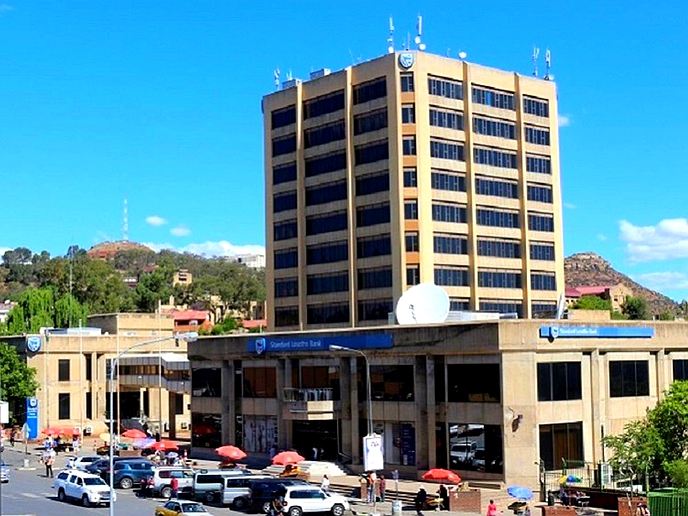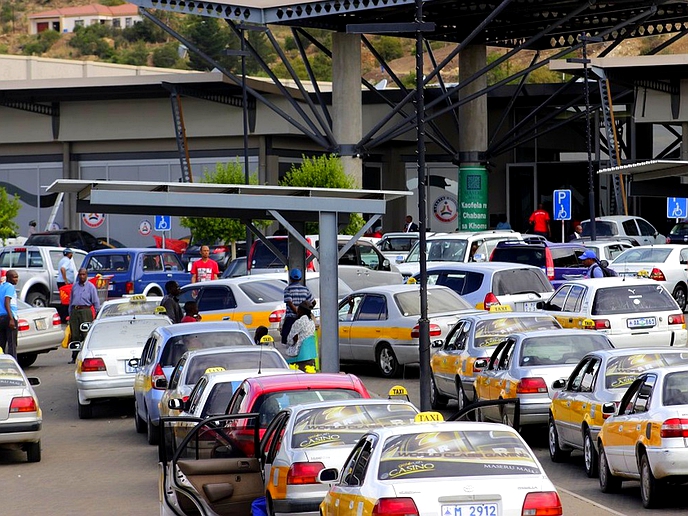FOLLOWING a series of protests by factory workers in the past three weeks, the government has finally pledged to publish the much-awaited gazette that would see the workers earn improved salaries for the first time since 2019.
business
May 21, 2021
NEO SENOKO
3 min read
Workers unions happy with wage gazette

The National Clothing Textile and Allied Workers Union Secretary General Sam Mokhele
The gazette is expected to be published on or before Monday next week.
Trade unions which have been at the forefront of the mass demonstrations over the past weeks have expressed satisfaction on government’s intervention in a bid to resolve all issues on the table.
“We had a meeting with the subcommittee today and we are happy because we were able to discuss all the concerning issues. They promised us that the gazette will be released on or before Monday next week,” the National Clothing Textile and Allied Workers Union (NACTWU), Secretary General Sam Mokhele told Metro on Wednesday.
The subcommittee is comprised of the Minister of Public Service, Motlohi Maliehe, the Minister of Small Business Development, Cooperatives and Marketing Chief Thesele ’Maseribane, the Minister of Tourism, Environment and Culture Advocate Lekhetho Rakuoane and the Minister of Trade and Industry, Dr Thabiso Molapo.
It is chaired by the Minister of Labour and Employment Moshe Leoma.
Mr Mokhele revealed that the subcommittee has further promised to meet the employers before presenting all the grievances to the Prime Minister.
“A special cabinet meeting will be called where stakeholders will try to come up with the long-term solution to all the challenges facing the workers in the country,” he said.
Apart from the salary increment, unions further want the Ministry of Labour to pass the reviewed Labour Code Order of 2006.
They also want Mr Leoma to fast track the issuance of the bill as it is beneficial to the workers, employers and the country as whole.
They further want the government to issue out the social security bill which they argue, could have helped workers during devastating lockdowns induced by the COVID-19 pandemic.
Since the beginning of the mass actions, a number of people were injured and others detained in both Maseru and Maputsoe as police tried to control the situation.
In Maseru, traffic was brought to a standstill in the early hours of Monday morning along the Ha Thetsane area where factory workers demonstrated their fury by blocking roads with burning tyres and stones.
A few weeks ago during another industrial action, three people were shot and injured by police in an attempt to disperse the picketers.
One of the injured people was a street vendor operating a nearby stall.
On Monday protest organisers told Metro that at least four people we detained by police while five others including four in Maputsoe and one in Maseru were injured during the demonstrations.
Enjoy our daily newsletter from today
Access exclusive newsletters, along with previews of new media releases.
The textile and apparel industry in Lesotho grew from having just a handful of factories in the 1990’s to becoming the largest private sector employer, providing over 40 000 jobs and benefiting around 13 percent of the country’s population according to the World Bank.
Between 2001 and 2004, textile and apparel exports from Lesotho to the United States increased from $140 million to $450 million, representing a 22 percent increase.
The foreign investment that poured into Lesotho during this time facilitated structural transformation and boosted the long-term competitiveness of the sector.
The manufacturing sector grew by 34 percent between 2014 and 2019, owing largely to a tripling of textile and apparel exports to South Africa, which helped offset the decline in exports to the United States.
The series of strikes will certainly contribute to the already threatened industry due to the ongoing COVID-19 pandemic.
Lesotho is facing a tough fiscal outlook as the Southern African Customs Union (SACU) transfers, private investments and exports are declining.
Real gross domestic product growth is estimated to have contracted by 15.7 percent in the second quarter of 2020, largely due to the negative shock of the pandemic.
The protests were spearheaded by different trade unions including NACTWU, the United Textile Employees (UNITE), Lesotho Workers Association (LEWA), Lentsoe La Sechaba Trade Union (LESWA) as well as Construction, Mining and Quarry Trade Union (CMQ) and Lesotho Wholesale, Catering and Allied Workers Union (LEWCAWU).
Tailored for you






